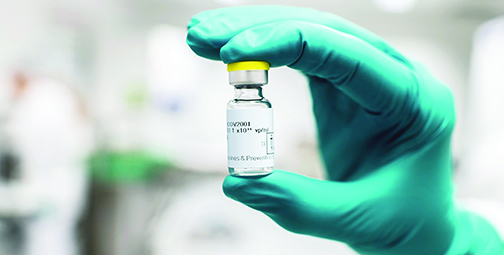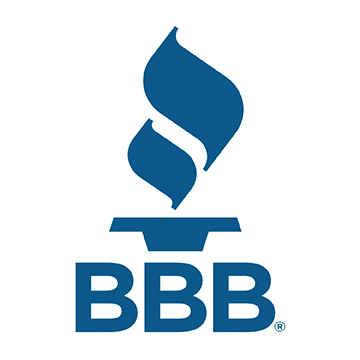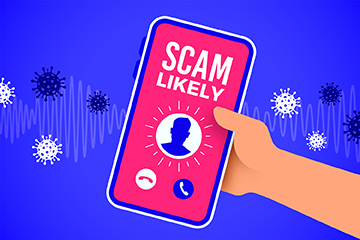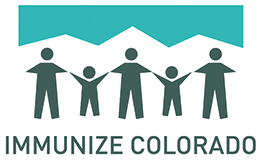“Humans are startlingly bad at detecting fraud Even when we’re on the lookout for signs of deception, studies show, our accuracy is hardly better than chance.” – Maria Konnikova
Over the last year, the pandemic has proven that there is no level of trickery that is too low for some people.
Humanity’s ever-industrious scammer contingent will seemingly stop at nothing to achieve its prime objective — to separate you from your money. The current populace of frightened, poorly informed, emotionally vulnerable people has created a lush marketplace for fraud. Folks who desperately want to stop isolating, masking and disinfecting their lives away and get back to living them instead are falling victim to COVID-19 vaccine scams.
These ploys are disguised as websites, emails, phone calls, text messages and — yes — personal visits to your home. The perpetrators make an offer, convince victims to provide personal information or money and then they disappear. Here are some of the scams currently underway and how to spot them.

Free Vaccines: The vaccines from Johnson & Johnson, Moderna and other companies should be free, no exceptions. Image: Johnson & JohnsonFree Vaccines: The vaccines from Johnson & Johnson, Moderna and other companies should be free, no exceptions. Image: Johnson & Johnson
All Vaccines Should Be Free
Moderna, Johnson & Johnson, Pfizer and their emerging vaccine-making counterparts are being compensated by the U.S. Government. There should be no cost to you other than a small administration fee, if any. If someone approaches you via phone call, text message, email, or in-person visit with an offer to “sell” you a dose or a vial of vaccine, report them to the Federal Trade Commission (FTC) at ReportFraud.ftc.gov. Sinovac is a China-based company which has tested a successful vaccine, yet this is not approved for distribution in the United States. Regardless, several social media campaigns were running ads claiming to be making this vaccine available for American consumers — for a price.
Scammers Have Bad Grammar
Anyone with a computer, an internet connection and a few basic skills can make websites and send emails. Since most of the vaccine scams are purported by criminals who are overseas, their lack of skill with the English language will be apparent in the text of the email or website landing page. In the case of an email, look for basic mistakes in punctuation, pluralization, spelling and euphemistic language. Also, no signature on an email is a red flag as is any email that appears to be from a government agency, pharmaceutical company, or a vaccine distributor. Websites offering vaccines will be using a specific set of keywords in their titles to attract traffic. Be on the lookout for terms such as “private vaccine, testing update, COVID validator, cure COVID, testing update, Corona vaccine and COVID -19.”
Phishy Phone Calls
Stateside scammers or those with a believable command over American English may call you out of the blue. They will claim to be working in some sort of an official capacity, either for a pharmaceutical company, a healthcare provider, the Centers for Disease Control (CDC) or some branch of the U.S. Government. The next giveaway is that they will ask you to “verify” your identity by providing them with some sort of personal information whether it is your Medicaid policy number, your birth date or your SSN. Some of them may go so far as to tell you they are going to show up and personally administer the vaccine for you. Remember this: whether on the phone or via email, verifiers are liars.
Bad Business

BBB: The Denver Better Business Bureau is keeping tabs on local and international scammers via their Scam Tracker Tool.
Meanwhile, the Denver chapter of the Better Business Bureau is keeping tabs on these scammers. Content and PR Specialist Keylen Villagrana offers insight into an array of both international and locally-run
scams. “Fake unemployment claims, stimulus check scams, puppy scams ([they] are rising as more people are working from home) and employment scams for work-from-home positions. [There is] even an elaborate romance scam operating overseas where victims are turned into ‘money mules’ in order for scammers to retrieve fake unemployment claim money. They use victims for their U.S. based bank account and ask them to wire money to a bank account [that is] very likely overseas. (Wire transfers can’t be traced),” she says. Of all the current ruses, one is unanimously more popular than the others. Villagrana explains, “Consumers are contacted after they have received the COVID-19 vaccine (although many are contacted that haven’t even received the vaccine), to take a survey and in exchange for a ‘gift.’ All they have to do is pay for shipping and handling ranging from $2.99-$19.99 depending on
the gift they choose. Most never receive anything and some have reported unauthorized charges.” Folks are in luck, however, as this agency keeps a running tally on all past and current scams via their “Scam Tracker” tool available here: www. bbb.org/scamtracker.
Trash Can Treasure
Ads such as the one mentioned above claiming to be selling vaccines should be disregarded. The messaging features such as Facebook Messenger are also avenues scammers will take to try and get your attention through personal messages containing “incredible” deals on Covid-19 vaccines. The main rule of thumb here: if it sounds too good to be true, it’s a scam.
Some Lines Can’t Be Skipped
Yet another scenario involves scammers who claim to be able to do the legwork for you and “track down” your vaccination. Others offer a similar service by promising that they can use their contacts in the medical industry to help you “skip the line” and get a vaccination sooner than the current tiered rollout system allows. These are scams that will require the service fee be paid in advance and once the money is sent, that’s all she wrote.
Thankfully, legitimate sources are standing by to provide citizens with answers about the specific tiers of the vaccine rollout and where the efforts are on the projected timeline. You can find out more by going to Colorado Vaccine Equity www.colorado vaccineequity.org, Immunize Colorado www. immunizecolorado.org and the Colorado Department of Health and Environment covid19.colorado.gov.



